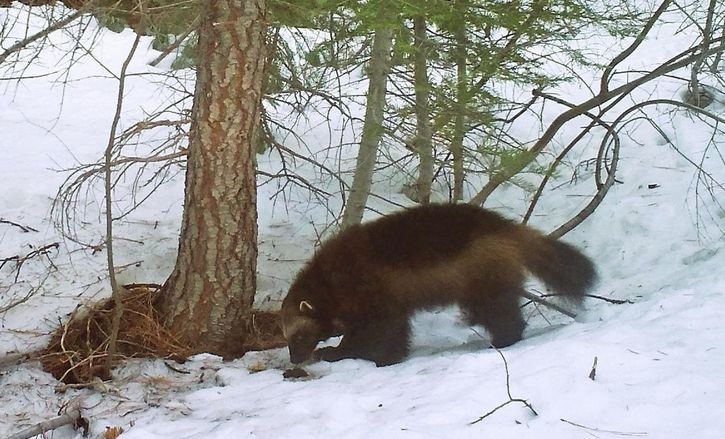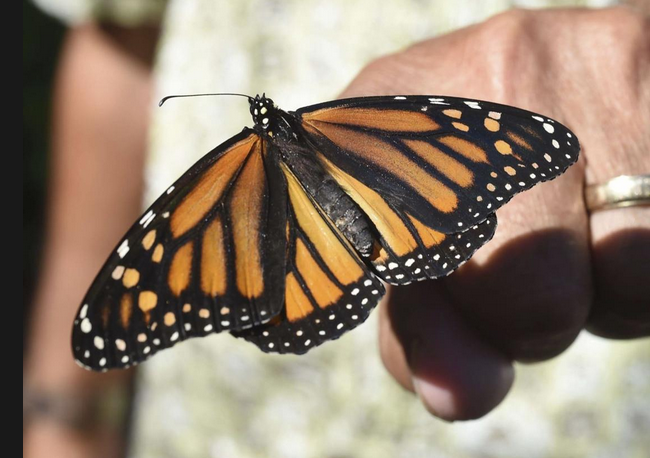Administration officials said the new rules would advance conservation by simplifying and improving how the landmark Endangered Species Act is used. "These rules will be very protective," said U.S. Interior Department Deputy Secretary David Bernhardt, adding that the changes would reduce the "conflict and uncertainty" associated with many protected species.
The proposals drew immediate condemnation from Democrats and wildlife advocates.
Critics said the moves would speed extinctions in the name of furthering its anti-environment agenda. Species currently under consideration for protections are considered especially at risk, including the North American wolverine and the monarch butterfly, they said.
"It essentially turns every listing of a species into a negotiation," said Noah Greenwald with the Center for Biological Diversity. "They could decide that building in a species' habitat or logging in trees where birds nest doesn't constitute harm."
A number of conflicts have arisen in the decades since the 1973 passage of the Endangered Species Act, ranging from disruptions to logging to protect spotted owls in the Pacific Northwest, to attacks on livestock that have accompanied the restoration of gray wolves in the Rocky Mountains and upper Midwest. Some species including gray wolves and grizzly retained protection for years after meeting their original recovery goals, often due to court orders resulting from environmentalists' lawsuits.
The proposed changes include potential limits on the designation of "critical habitat" for imperiled plants and animals; an end to a regulatory provision that gives threatened plants and animals the same protections as species at greater risk of extinction; and streamlining inter-agency consultations when federal government actions could jeopardize a species.
Collin O'Mara, president of the National Wildlife Federation, welcomed the potential for the changes to spur greater collaboration between landowners, government officials and conservationists — even as he cautioned against ending automatic protections for threatened species. "This is not all good or all bad," he said.
O'Mara said crafting case by case species management plans is an appropriate alternative to the blanket protections now given automatically to threatened and endangered species. Until those plans are completed, he said, broad protections against harming plants and animals should stay in place.
More than 700 animals and almost 1,000 plants in the U.S. are shielded by the law. Hundreds more are under consideration for protections.
Fewer than 100 species have been taken off the threatened and endangered lists, either because they were deemed recovered or, in at least 10 cases, went extinct.
Trump and Interior Secretary Ryan Zinke have been strong advocates for oil and gas drilling and other types of development, frequently criticizing environmental policies they say hinder economic activity. Zinke also has sought to portray himself as a conservationist in the vein of President Teddy Roosevelt who will protect the nation's natural resources. The administration's proposals follow longstanding criticism of the Endangered Species Act by business groups and some members of Congress. Republican lawmakers are pushing legislation to enact broad changes to the law, saying it hinders economic activities while doing little to restore species.
One of the chief architects of that effort, U.S. Sen. John Barrasso, a Republican from Wyoming who chairs the Environment and Public Works Committee, said the administration's proposals were "a good start" but indicated more work was needed.
"The administration is limited by an existing law that needs to be updated," Barrasso said. "The changes I have proposed will empower states, promote the recovery of species, and allow local economies to thrive."
The Pacific Legal Foundation, a conservative law firm headquartered in California, lobbied for some of the changes.
CLICK here to see the original Associated Press article and photos in The Bakersfield News.


 RSS Feed
RSS Feed